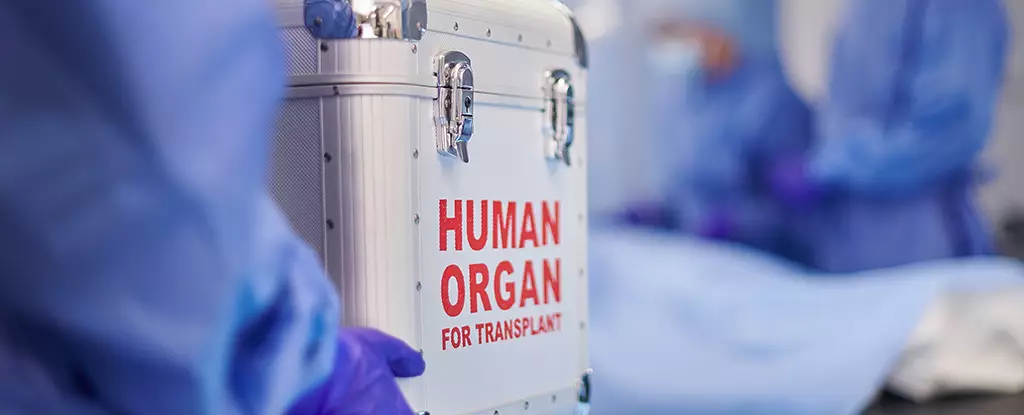The tale of Anthony Thomas ‘TJ’ Hoover II, a 36-year-old man who reportedly awoke during an organ donation procedure, has ignited serious concerns regarding the medical protocols that govern the declaration of death in organ donation processes. This shocking revelation was brought to light by whistleblower Nyckoletta Martin, previously an organ preservationist at Kentucky Organ Donor Affiliates (KODA). Martin’s letter addressed to the US House of Representatives’ Energy and Commerce Committee during a September hearing has raised critical questions about the safeguards that should be in place to prevent such a horrifying scenario from occurring.
While the management of organ donation is vital to saving countless lives, this incident reveals potential flaws in the protocols that are meant to determine a donor’s eligibility for the procedure. Following a drug overdose, TJ was declared brain dead after a cardiac arrest. The swift actions taken by medical professionals to prepare for organ donation were, understandably, predicated on the assumption that TJ was unresponsive. However, the disturbing details of what transpired in the operating room would soon unravel a different narrative that none could have predicted.
Family members of TJ were present at the hospital, witnessing their loved one’s condition deteriorate before being informed that he would be an organ donor. Tragically, they later reported seeing his eyes open and a brief moment of movement as he was wheeled toward the operating room. Initially, medical staff asserted that such movements were mere reflexes—common occurrences when a patient is approaching brain death. However, as TJ demonstrated more pronounced movements on the operating table, including visible crying, the atmosphere shifted from one of cold clinical detachment to palpable concern among the surgical team.
Natasha Miller, an organ preservationist at the hospital, described the scene as chaotic and emotionally charged. Surgeons began to feel an instinctive apprehension about proceeding with the surgery, leading to a quick halt in hands that were preparing to carry out what should have been a life-saving procedure. This instance casts doubt on the clarity and efficacy of the criteria and evaluations that help ascertain a patient’s true state of consciousness. If medical professionals could make such a significant error in judgment, it raises the question: How can the public trust a system built on these protocols?
While TJ’s miraculous survival brings relief, it also serves as a painful reminder of the ethical dilemmas and potential failings in the organ donation process. The expectations surrounding organ procurement are that they must be conducted with precise standards that protect not only the integrity of the medical establishment but also the dignity of the patients involved. The unfortunate reality is that incidents like this not only threaten public trust in transplant systems but revive fears that their loved ones could face a similar fate.
The failure to comprehensively verify the true state of brain death prior to organ donation inherently presents a moral challenge. The boundaries delineating life and death, which should operate as an unshakeable foundation for organ donation, are paradoxically thin and sometimes nebulous. As medical technology evolves and our understanding of consciousness deepens, it becomes increasingly imperative that clearer and sounder criteria are established to avert the heart-wrenching situations like TJ’s case.
Organ transplantation remains a pressing health concern in the United States, as evidenced by the staggering number of patients on waiting lists—often exceeding 100,000. While over 46,000 transplants were successfully carried out last year, the fleeting nature of the filters that should protect against errors calls into question how these behind-the-scenes processes are handled. The present administration is facing mounting pressure to undertake substantial reforms in this arena, addressing not only the quality of care in organ donation but accountability and transparency.
The controversy surrounding TJ’s case demands heightened scrutiny into how medical networks operate and necessitates a broader examination of systemic inefficiencies that plague the organ donation procedure. It remains critical for investigators to pursue the truth behind this unsettling scenario and to ensure that protocols are strengthened. Only by learning from such distressing experiences can the organ donation system work towards becoming more reliable, protecting both the deceased and the living and ensuring that hope continues to thrive amidst the dire need for organ transplants.
TJ’s case is a stark reminder of the fragility surrounding the definition of life and death in the medical field. It implores society to engage in necessary dialogues about safety, ethical practices, and the ever-pressing need for reform in organ transplantation protocols. Only by critically examining our systems can we avoid repeating the misfortunes of the past and safeguarding the future for countless patients awaiting a second chance at life.


Leave a Reply